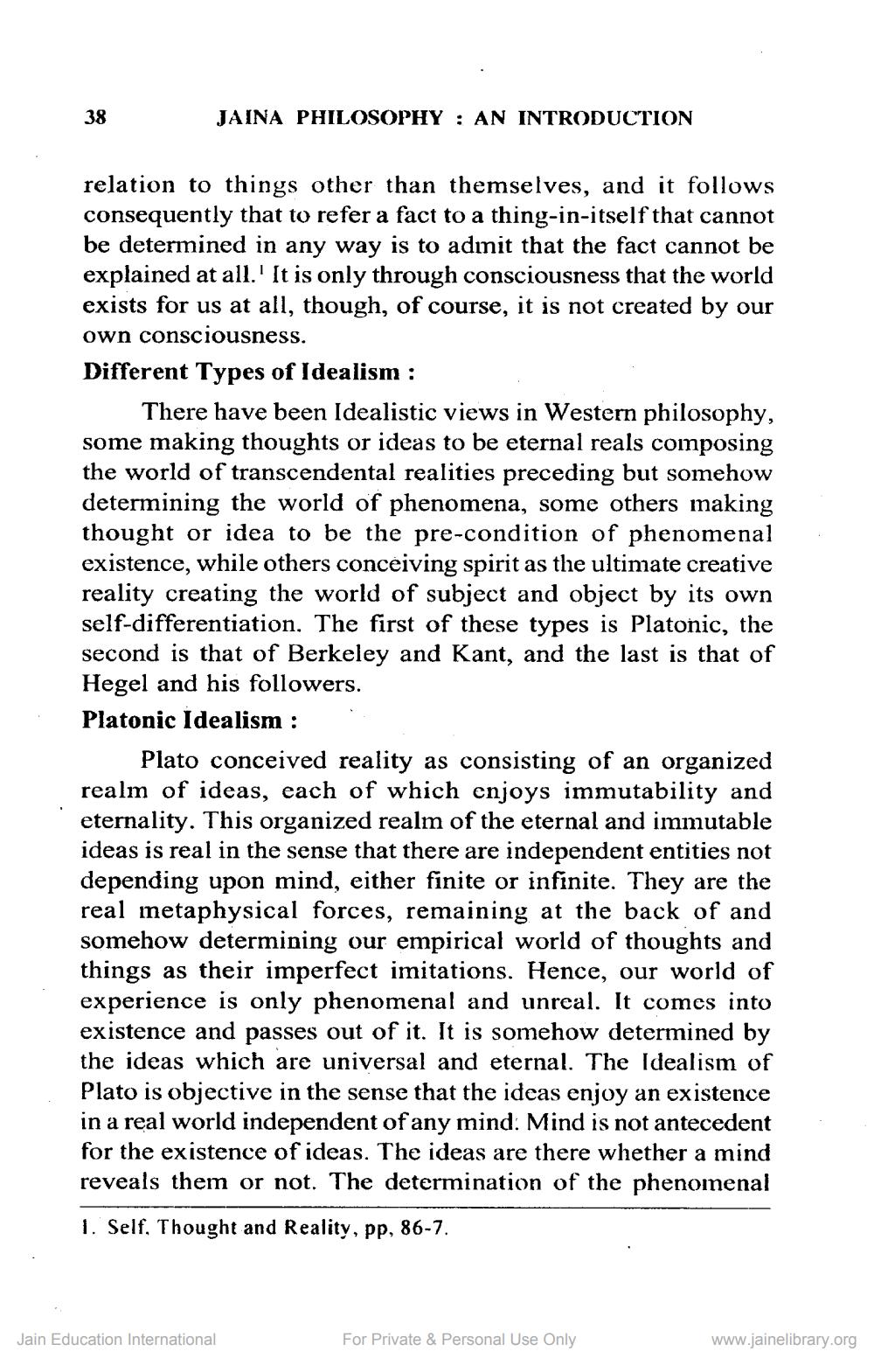________________
38
JAINA PHILOSOPHY : AN INTRODUCTION
relation to things other than themselves, and it follows consequently that to refer a fact to a thing-in-itself that cannot be determined in any way is to adınit that the fact cannot be explained at all.' It is only through consciousness that the world exists for us at all, though, of course, it is not created by our own consciousness. Different Types of Idealism :
There have been Idealistic views in Western philosophy, some making thoughts or ideas to be eternal reals composing the world of transcendental realities preceding but somehow determining the world of phenomena, some others making thought or idea to be the pre-condition of phenomenal existence, while others conceiving spirit as the ultimate creative reality creating the world of subject and object by its own self-differentiation. The first of these types is Platonic, the second is that of Berkeley and Kant, and the last is that of Hegel and his followers. Platonic Idealism : "
Plato conceived reality as consisting of an organized realm of ideas, each of which enjoys immutability and eternality. This organized realm of the eternal and immutable ideas is real in the sense that there are independent entities not depending upon mind, either finite or infinite. They are the real metaphysical forces, remaining at the back of and somehow determining our empirical world of thoughts and things as their imperfect imitations. Hence, our world of experience is only phenomenal and unreal. It comes into existence and passes out of it. It is somehow determined by the ideas which are universal and eternal. The Idealism of Plato is objective in the sense that the ideas enjoy an existence in a real world independent of any mind. Mind is not antecedent for the existence of ideas. The ideas are there whether a mind reveals them or not. The determination of the phenomenal 1. Self, Thought and Reality, pp, 86-7.
Jain Education International
For Private & Personal Use Only
www.jainelibrary.org




